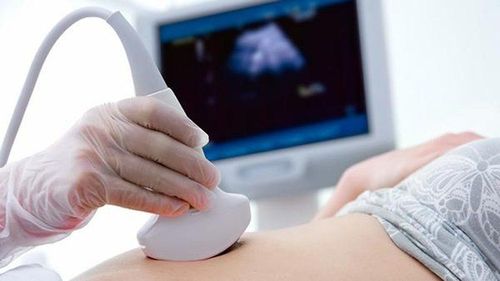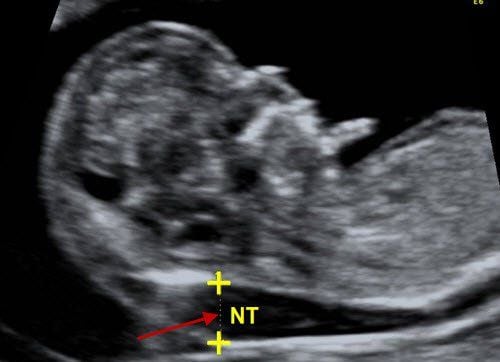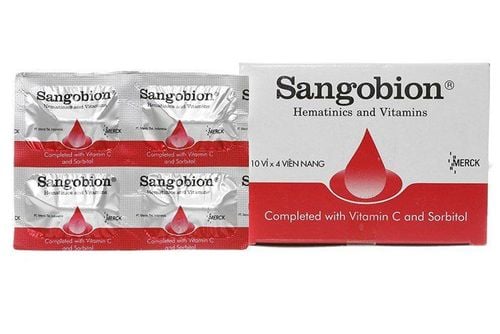This is an automatically translated article.
The article was professionally consulted by Associate Professor, Doctor, Doctor Nguyen Viet Nhan, Genetic Consultant - Vinmec Times City International General Hospital.In order for the pregnancy process to be complete and full of nutrients for both mother and baby, a woman needs to plan a daily nutritional plan for herself right before conception, in which it is impossible to lack of the following important nutrients.
1. Supplement with folic acid (vitamin B9)
Folic acid, also known as Vitamin B9, is a very necessary vitamin for the development of the fetus, taking folic acid in appropriate doses from 3 months before pregnancy to the end of the first 3 months of pregnancy reduces There is a significant proportion of fetuses with neural tube defects, a type of birth defect that is quite common in fetuses, such as spina bifida causing paralysis of the lower extremities, urinary incontinence, loss of sensation in the lower extremities, etc. or more severe such as anencephaly, etc.Therefore, in addition to supplementing with folic acid from food, even before planning a pregnancy, women should use folic acid tablets to supplement vitamins and prevention of this common and serious malformation. The doctor will recommend a specific daily dose, the current common dose (recommended by the US Department of Health) is 0.8mg (800 mcg)/day.
Folic acid is abundant in bean sprouts, dark green vegetables such as broccoli, spinach, nuts, milk, bananas...
Trắc nghiệm: Chế độ dinh dưỡng 3 tháng đầu thai kỳ của mẹ bầu như thế nào?
3 tháng đầu được coi là giai đoạn phát triển quan trọng nhất của thai nhi. Để phát triển toàn diện, thai nhi cần được cung cấp đầy đủ dưỡng chất, đặc biệt là các vi chất cần thiết. Làm bài trắc nghiệm dưới đây sẽ giúp bạn có thêm kiến thức về chế độ dinh dưỡng trong 3 tháng đầu thai kỳ.The following content is prepared under supervision of Bác sĩ chuyên khoa I, Lê Hồng Liên , Sản phụ khoa , Khoa Sản phụ khoa - Bệnh viện Đa khoa Quốc tế Vinmec Central Park
2. Iron supplement
Iron participates in the composition of red blood cells and plays an important role in oxygen transport, so it is very important, especially for pregnant women. During pregnancy The World Health Organization (WHO) recommends about 30mg of elemental iron per day to prevent anemia.To take the right dose of iron, you need to distinguish elemental iron and compound iron in common iron drugs on the market, for example to be able to provide enough 30 mg of elemental iron per day. up to 90 mg of ferrous fumarate or 250 mg of ferrous gluconate. Because the excess iron taken into the body will not be eliminated but stored, regular iron intake and specific dosage need to be considered.
Iron intake is only really important if you are iron-deficient anemia, if your iron levels are normal, then iron supplementation has no benefit, not to mention in the case of a carrier of hemolytic anemia. Thalassemia, despite anemia, but serum iron levels are still very high when taking iron is contraindicated. The doctor will base on your blood count, serum iron level to make appropriate indications.
Iron will be abundant in spinach, lean meat, sea fish, water spinach...
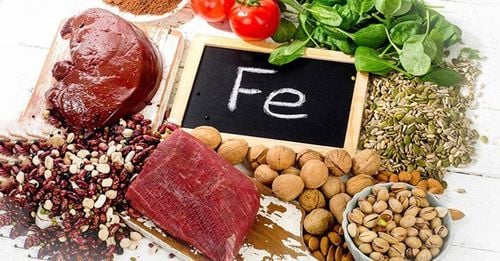
3. Calcium supplement
Everyone, including men and women, needs essential minerals every day, calcium is an extremely important mineral component, in addition to building bones and teeth, calcium also participates in movement, circulation, nerve transmission. terrible.When you are pregnant, the baby cannot synthesize calcium on its own, so you are the only source of calcium for your baby, and this calcium source will be obtained mainly from the mother's bones and teeth. From the 29th week of pregnancy onwards, the baby will take from the mother an average of 250 mg of calcium/day to serve the bone building.
Therefore, calcium supplementation is indispensable in the diet for pregnant women both before and during pregnancy. In addition to a calcium-rich diet, it is necessary to supplement calcium through oral tablets. On average, pre-pregnancy women need about 800 mg of elemental calcium per day to ensure enough calcium for the body, while pregnant women need to supplement about 1000-2000 mg and should not exceed 2500 mg of elemental calcium. everyday.
However, just like iron tablets, mothers need to pay attention to the amount of elemental calcium and compound calcium, for example, in 1000 mg of calcium carbonate (common calcium pills on the market in this form) there is only 400 mg of elemental calcium. .
For the best absorption of calcium, calcium needs to be taken with the appropriate dose and time, avoid taking it with some drugs, so to get the most effectiveness when taking calcium supplements, you should consult your doctor. doctor.
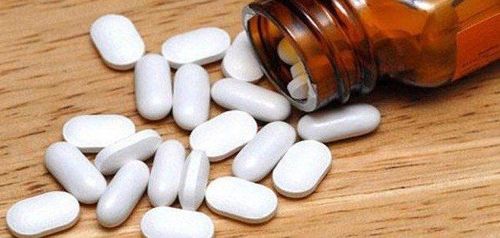
4. Supplementing with vitamins and trace elements
Recent research shows that taking a multivitamin (including folic acid) before and during pregnancy reduces the risk of having a baby with autism spectrum abnormalities. Your diet is also difficult to balance and ensure adequate supply of all vitamins and trace elements, so it is necessary to supplement with multivitamin tablets with appropriate dosage before and during pregnancy. importance.Women preparing to become pregnant can supplement vitamins from food or pills. Vitamin A is abundant in sea fish liver, carrots, pumpkins, tomatoes... Vitamin C in green vegetables, fresh fruits ...
5. DHA is included in the composition of Omega 3 . fatty acids
DHA has a great significance for fetal development. The DHA component in Omega 3 helps develop the baby's central nervous system from the first weeks of pregnancy, DHA also helps develop the facial retina, reducing the risk of premature birth, low birth weight. You should not only drink when you are pregnant, but supplementing with DHA from before pregnancy provides an extremely important reserve of DHA for the development of the fetus during pregnancy, especially in the first weeks, the period development of the central nervous system.DHA is found in foods such as: fish, egg yolks, milk, red meat, nuts... However, providing DHA through Omega 3 pills is the most convenient. The minimum dose of DHA for adults is about 220 mg/day, for pregnant women and breastfeeding about 300 mg/day.
Nutrition before pregnancy, during and after pregnancy is very important to ensure the complete health of both mother and baby. However, not all women have enough knowledge and experience in nutrition. Pre-pregnancy nutrition counseling for women should be done by doctors and nutritionists for detailed and specific advice. Based on each woman's health situation, the doctor will offer the most appropriate and optimal nutritional solution.
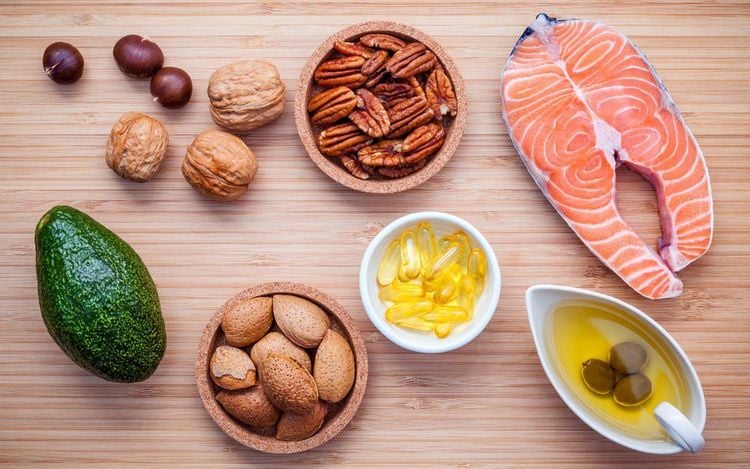
6. Pre-pregnancy health care and counseling program
Nutritional counseling before pregnancy is one of the issues under the Pre-pregnancy health care and counseling program of Vinmec International General Hospital. The program is consulted by a team of experts and leading doctors with important content on pre-marital health care such as:Support for problems related to family genetics Screening and detecting people heal carriers of disease Preparing for assisted reproductive services Pharmaceutical use and pregnancy Vaccinations Vaccines Food use and pregnancy Prevention of exposure to hazardous chemicals, hazardous physical agents Issues about the other health of you and your husband (wife)
Please dial HOTLINE for more information or register for an appointment HERE. Download MyVinmec app to make appointments faster and to manage your bookings easily.






